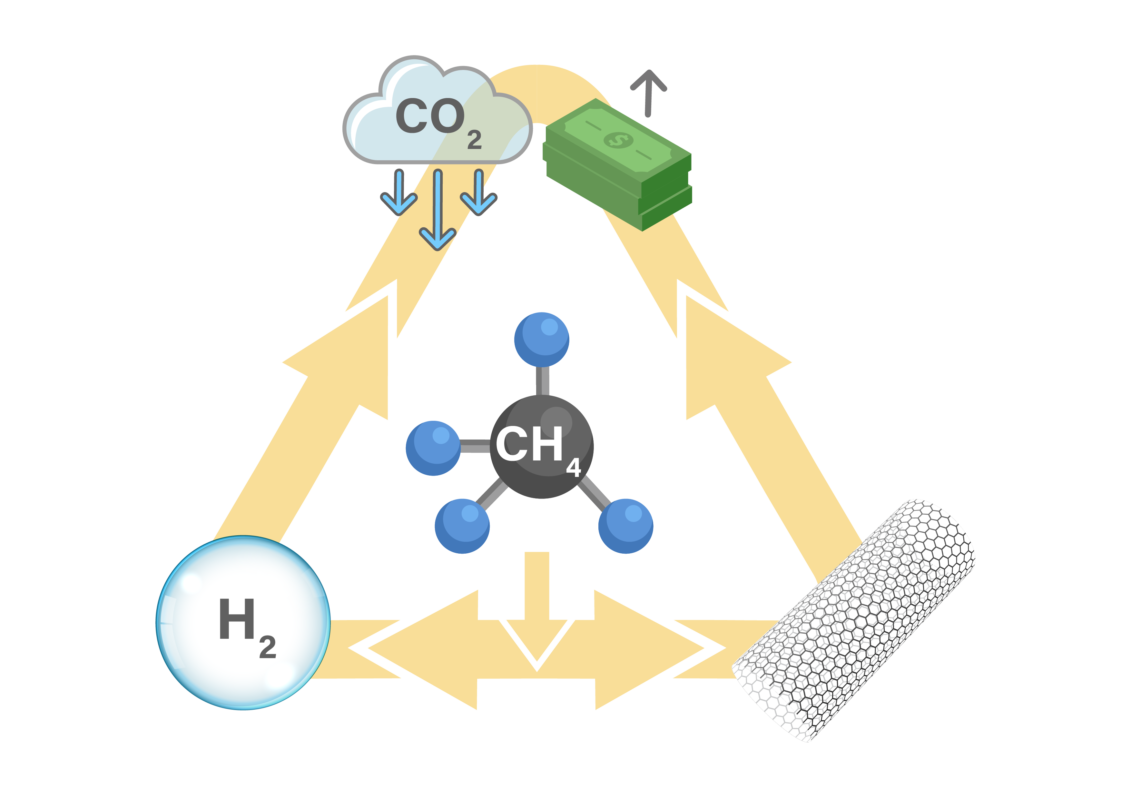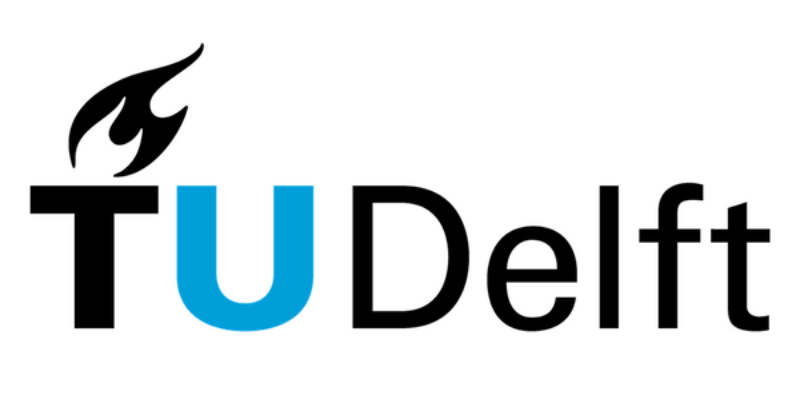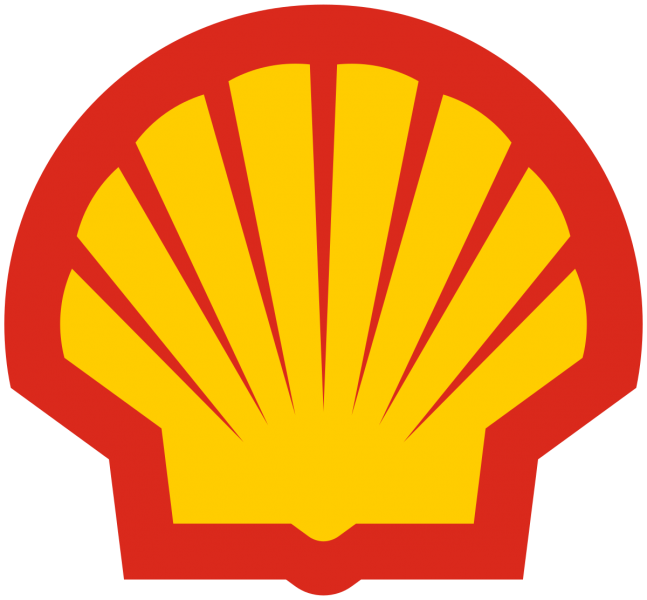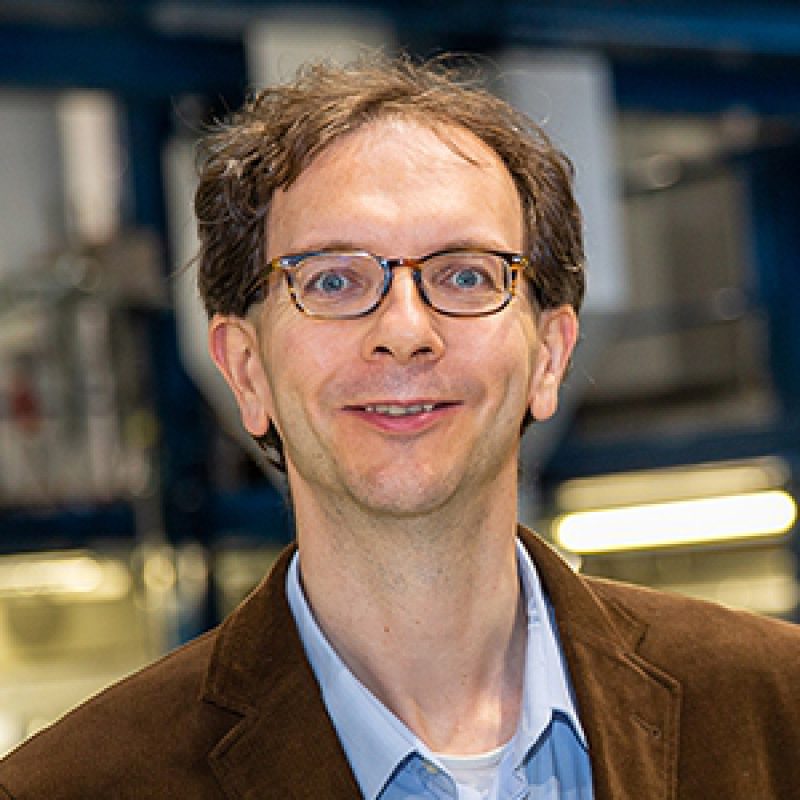Methane pyrolysis offers great potential for producing COx-free hydrogen and valuable carbon nanomaterials from natural gas and biogas. Despite its potential, few studies address its economic and environmental evaluation. This project aims to provide a comprehensive assessment of the process at an industrial scale.

Methane pyrolysis (MP) presents a promising path for producing COx-free hydrogen and solid carbon from methane that could serve as a bridge technology from fossil fuels to a sustainable hydrogen economy. With the right catalyst and operating conditions, valuable nanocarbons, such as carbon nanofibers and nanotubes can be produced. Despite its considerable potential, only a handful of research address its economic viability and environmental impact. This project aims to fill this gap by conducting a comprehensive evaluation of the process on an industrial scale, providing insights into its feasibility and sustainability in the energy landscape.
This initiative commences with a thorough market analysis to investigate the potential of carbon products from MP, including the examination of quality requirements, market size, prices, and applications. Subsequently, a conceptual MP plant will be developed, including the upstream and downstream separation processes, while adopting heat recovery and optimization strategies. This plant model will serve as the basis for estimating capital and operating costs, as well as the CO2 intensity of MP supply chain.
Furthermore, sensitivity analyses will be performed on both the techno-economic and life-cycle assessment to study the effects of different process parameters such as temperature, pressure, methane conversion, heating modes, carbon ratio, and others. These analyses will provide insights on how these parameters influence economic viability and overall CO2 emissions, thereby enhancing our understanding of the potential of MP as a transformative energy solution.
Partners




